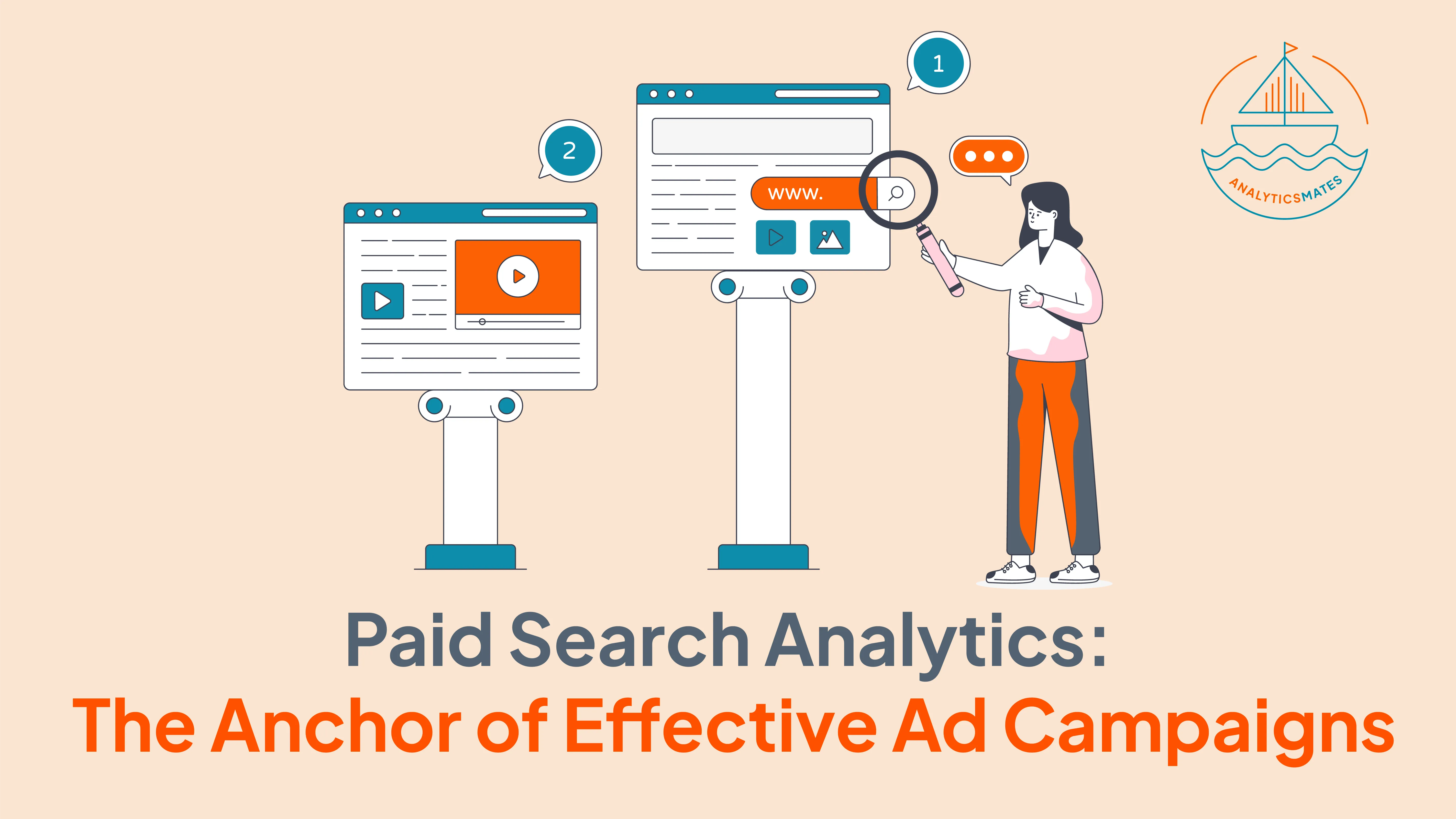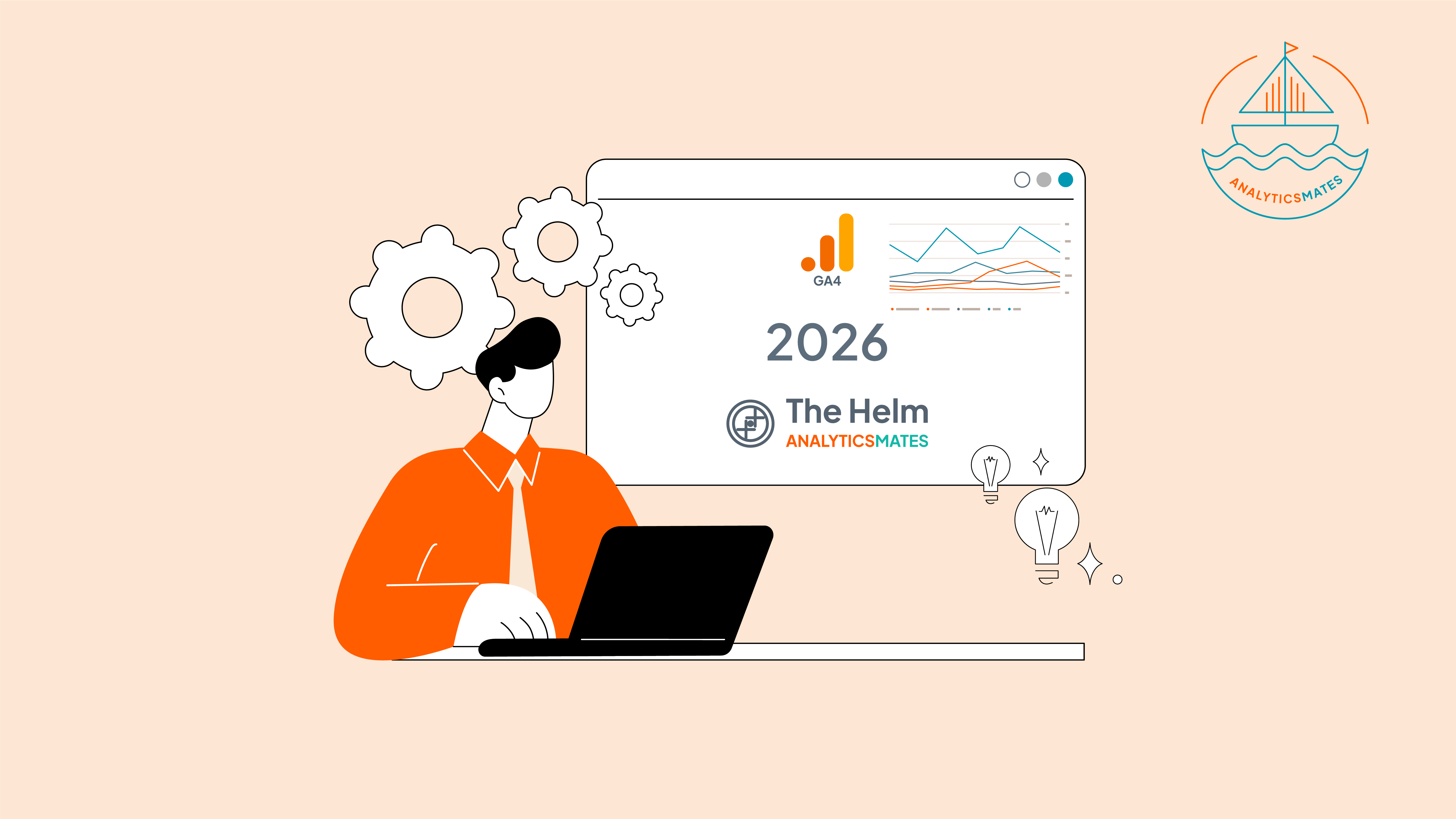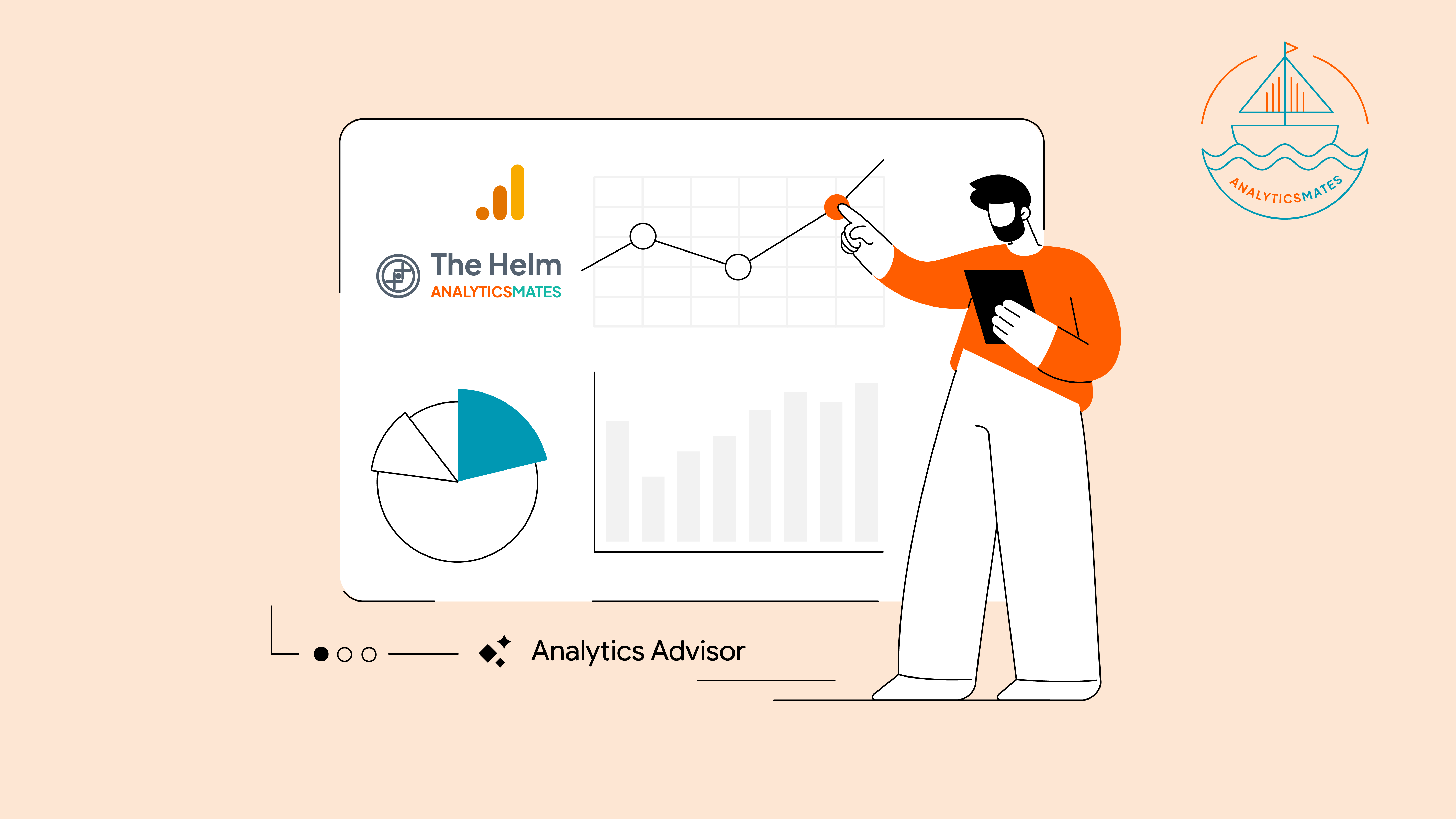In today's digital world, where everyone is fighting for attention, paid search campaigns are more important than ever. But to make the most of your campaigns, you need to understand the data behind them. That's where Paid Search Analytics comes in.
In this guide, we'll explain the importance of Paid Search Analytics, how it works, and how you can use it to improve your campaigns and achieve your digital marketing goals.
Decoding Paid Search
Basically, paid search is a type of advertising where businesses pay to have their ads shown on search engine results pages (SERPs). These ads are different from organic listings, which are the unpaid results that show up when you search for something on Google or Bing. Paid ads are prominently placed at the top of the SERP, so they're more likely to be seen by potential customers.
Two of the most popular platforms for paid search are Google Ads and Bing Ads. With these platforms, you can create and manage your paid search campaigns, set your budget, and choose the keywords that you want your ads to show up for.
The Indispensable Role of Analytics in Paid Search
Every click, impression, and conversion in a paid search campaign generates data. This data, when analyzed, provides insights that can drive campaign optimizations. Here's why analytics is pivotal:
- Performance Assessment: Understand which ads are driving results and which need optimization.
- Budget Allocation: Determine where to allocate your budget for maximum ROI.
- Trend Analysis: Identify search trends to stay ahead of the competition.
- User Insights: Delve into user behavior, demographics, and intent to tailor campaigns.
Key Metrics in Paid Search Analytics
- Click-Through Rate (CTR): The ratio of users who click on your ad to the number of total users who view the ad (impressions).
- Cost Per Click (CPC): The amount you pay for each click on your ad.
- Conversion Rate: The percentage of users who take a desired action after clicking on your ad.
- Quality Score: A metric used by search engines to gauge the quality and relevance of your ads and keywords.
- Ad Position: The placement of your ad on the SERP.
Leveraging GA4 for Paid Search Analytics
Given the complexity and depth of data generated by paid search campaigns, having a robust analytics platform is essential. This is where GA4 comes into play. As a business that specializes in GA4 setup, analytics, and reporting, we understand the unmatched insights this platform offers for paid search.
- Seamless Integration: GA4 integrates effortlessly with platforms like Google Ads, ensuring you get a holistic view of your campaigns.
- Event-based Tracking: GA4's event-centric model provides granular insights into every user interaction.
- Cross-platform Insights: Understand user journeys across devices for a comprehensive campaign analysis.
- Custom Reporting: Tailor your reports to focus on metrics that matter the most to your business.
Enhancing Paid Search Campaigns with Analytics
- Keyword Optimization: Understand which keywords drive traffic and conversions. Refine your keyword strategy based on these insights.
- Ad Copy Refinement: Analyze which ad copies resonate with your audience. Tailor your messaging for better engagement.
- Audience Segmentation: Use analytics to segment your audience based on behavior, interests, and demographics. Target your ads accordingly.
- Landing Page Optimization: Ensure that users landing on your page have an optimized experience, leading to higher conversions.
Pitfalls to Avoid in Paid Search Analytics
- Data Overload: While data is invaluable, not all of it might be relevant. Focus on metrics that align with your business goals.
- Neglecting Mobile: Ensure your analytics strategy encompasses mobile metrics, given the surge in mobile searches.
- Over-reliance on Tools: While GA4 is a powerful platform, you can’t replace human insight and expertise. Ensure a balance between tool-driven insights and human interpretation.
Wrapping Up: The Future of Paid Search Analytics
By harnessing the power of analytics, your business can drive campaigns that are not only effective but also resonate with your target audience. Imagine this, analytics are like a GPS for paid search. They help you see where your campaigns are going and how you can improve them. So if you want to get the most out of your paid search investment, you need to pay attention to your analytics.
To sum it up, paid search is an investment. And like any investment, understanding its performance is crucial. Through comprehensive analytics, you can ensure that every dollar you spend gives you maximum returns. As you venture into or refine your paid search strategies, remember: data is your compass, and analytics, your navigator.
See Article Images
















